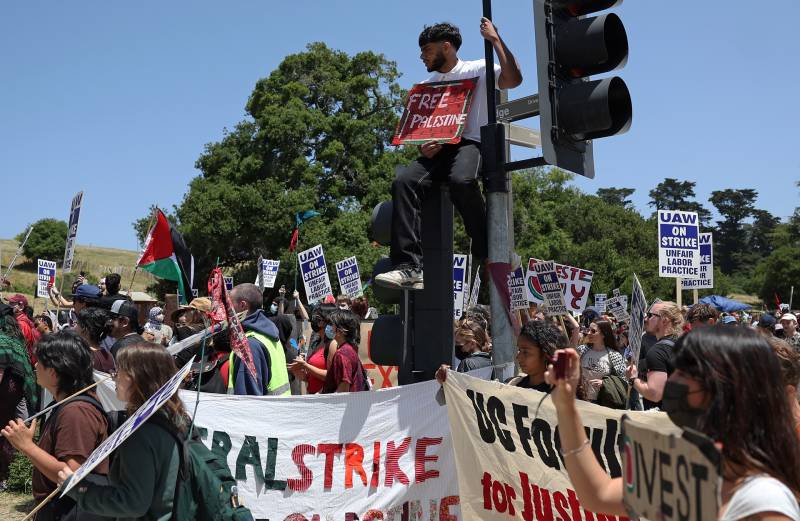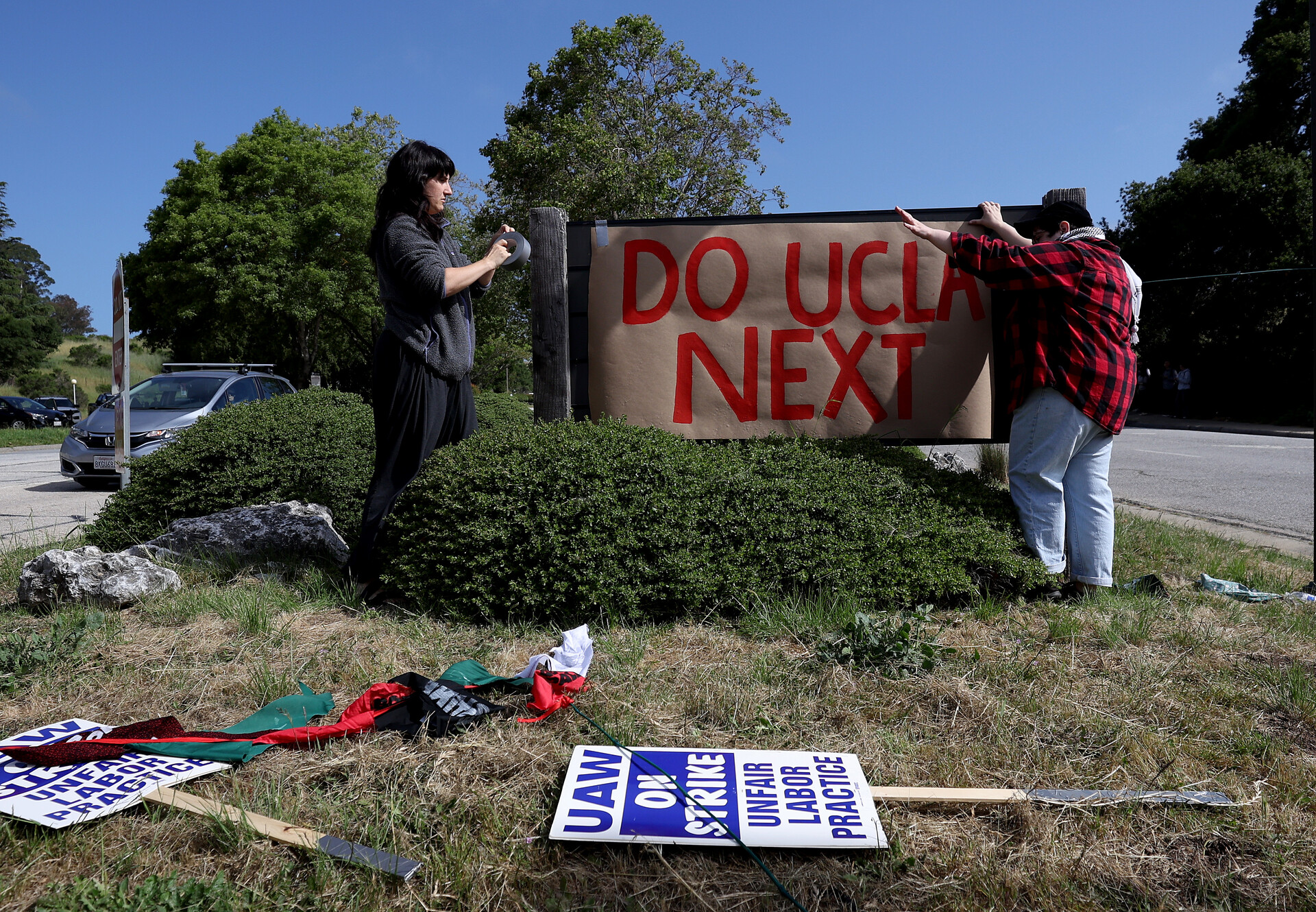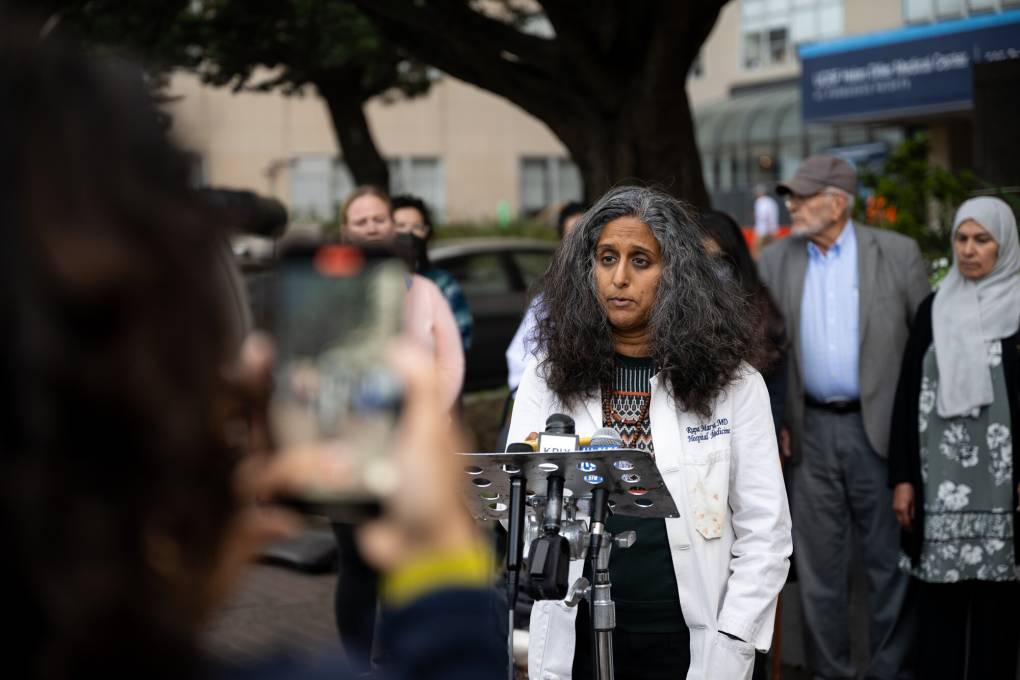Lawyers representing pro-Palestinian protesters at UC Santa Cruz who were temporarily banned from campus last spring are asking a judge to halt the practice, calling it illegal and “fundamentally unfair.”
The case seeks a court order declaring that the university cannot ban students without a hearing — except in situations where they find that the person’s presence poses a significant threat. In a motion filed Thursday night, lawyers asked the court to issue a preliminary injunction, preventing the school from doing so while the case works its way through the legal system.
Chessie Thacher, a senior attorney with the ACLU of Northern California, said the legal team felt it was important to stop the practice “as soon as possible” as students return to campus this week, expecting that there could be more protest activity.
“We are concerned that the school, if it thinks that it can use this section of penal code — 626.4 — indiscriminately, broadly, and just sort of gather everyone who’s in a spot protesting and ban them all instantly on the spot without due process, that’s a really big problem. And a lot of people will suffer,” she told KQED.



